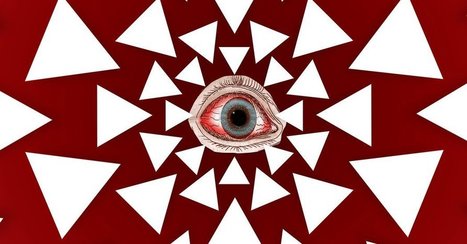Zeynep Tufekci writes: "What we are witnessing is the computational exploitation of a natural human desire: to look “behind the curtain,” to dig deeper into something that engages us. As we click and click, we are carried along by the exciting sensation of uncovering more secrets and deeper truths. YouTube leads viewers down a rabbit hole of extremism, while Google racks up the ad sales."
Research and publish the best content.
Get Started for FREE
Sign up with Facebook Sign up with X
I don't have a Facebook or a X account
Already have an account: Login
How do we define it, teach it, know it when we see it?
Curated by
Mary Reilley Clark
 Your new post is loading... Your new post is loading...
 Your new post is loading... Your new post is loading...
|
|













I use YouTube purely for recreational purposes--and the occasional "how do I replace [insert random broken household item]"-- but I just spent some time looking at various controversial topics. Sure enough, click on one anti-vaccination video, and all the recommended videos become anti-vaxx, even though when I did a simple [vaccination] search, the first page of videos were predominately pro-vaccination.
When I teach about doing Internet research I always talk about staying focused, since it's so easy to get distracted by irrelevant sites. My example is always YouTube. I ask students to raise their hand if they've watched a YouTube video for fun. Then I ask them to raise their hand if they stopped at that one video. No one does. Now, instead of just emphasizing why that rabbit hole can cost them research time, I'll be asking students to be more aware of where that rabbit hole might take them.